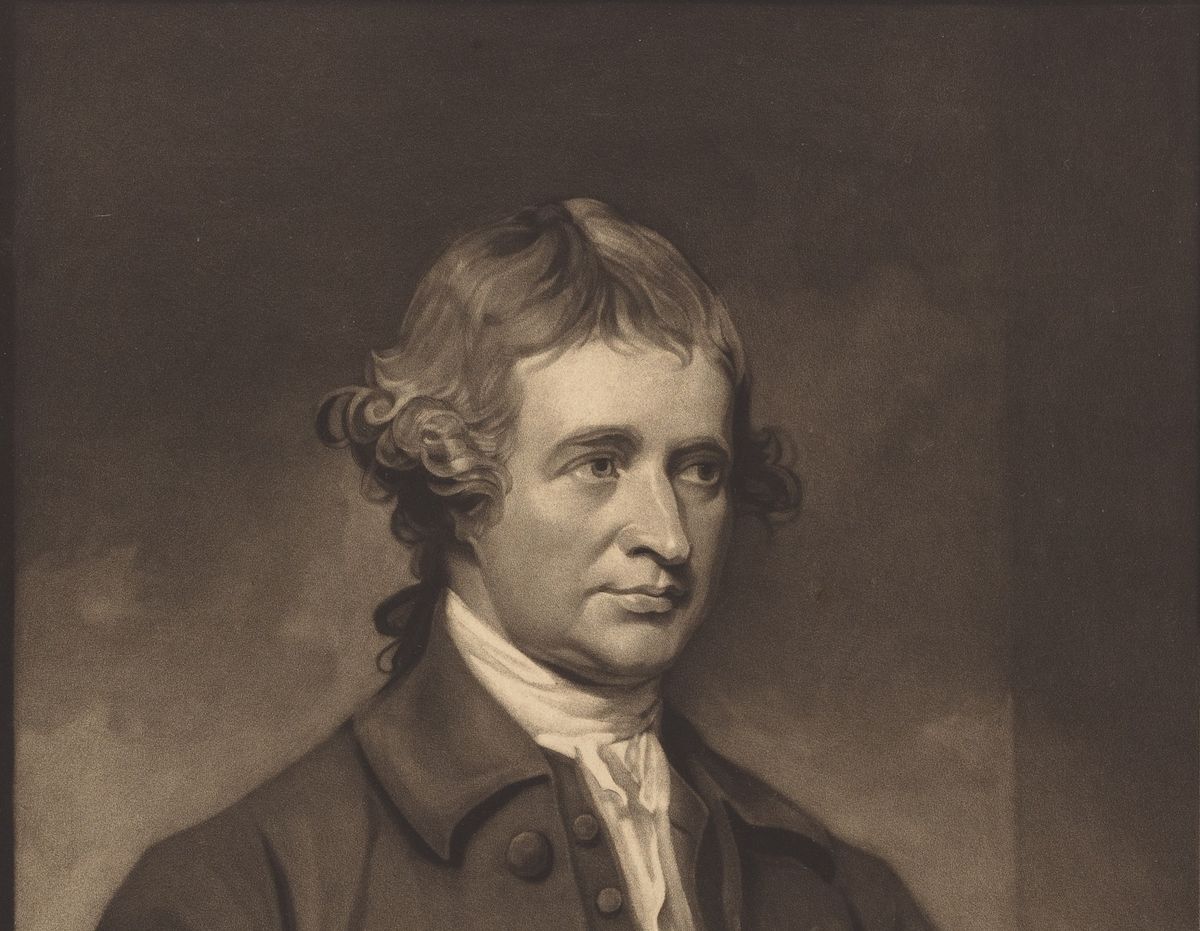On Right-Wing Liberalism

Government is a contrivance of human wisdom to provide for human wants. Men have a right that these wants should be provided for by this wisdom. Among these wants is to be reckoned the want, out of civil society, of a sufficient restraint upon their passions. Society requires not only that the passions of individuals should be subjected, but that even in the mass and body, as well as in the individuals, the inclinations of men should frequently be thwarted, their will controlled, and their passions brought into subjection. This can only be done by a power out of themselves; and not, in the exercise of its function, subject to that will and to those passions which it is its office to bridle and subdue.
Edmund Burke, Reflections on the Revolution in France
Liberalism can appear an ambiguous doctrine in part because self-described liberals have endorsed a rainbow of beliefs and policies since the 17th century. They have been enthusiastic cheerleaders for capitalism and liberal socialists, defenders of law and order and revolutionaries, imperialists and critics of empire. Contemporary conservatives like George Will and Jonah Goldberg claim to be critical defenders of the tradition, as do radicals like Chantal Mouffe and the late, great Charles Mills. This pluralism of liberalisms raises interesting questions about whether any core beliefs unite these disparate strands.
The problem is made worse given the exclusionary reasoning typically deployed by the gatekeepers of the tradition, who are quick to denigrate those flavors of liberalism which aren’t to their taste for not being the real deal. In his article “Intellectuals and Socialism” the right-wing liberal F. A. Hayek distinguished between the “true liberalism” of defenders of market society, and the socialist conceits so attractive to mid-century intellectuals. Many of these supposed socialists identified themselves as liberal, but lacked all the convictions Hayek saw as central to the outlook.
Gatekeeping on the other end of the political spectrum tends to be less prevalent, as many of the more egalitarian liberals from J. S. Mill through John Dewey onwards were cognisant of how their radicalization of liberalism constituted a break from the past. But there is undoubtedly a sense in which left-wing liberals often present themselves as more committed or consistent expositors of the tradition. They claim to be taking the basic principles and insights of liberalism to their normative conclusion without offering needless concessions to the ideology of possessive individualism and capitalism. For left-wing liberals, classical and now right-wing liberalism is insufficiently committed to the egalitarian and universally emancipatory core of the tradition; as Edmund Fawcett would put it, right-wing liberals are insufficiently interested in ensuring the goods of liberalism are available to everyone. Consequently, left liberals believe classical liberalism’s core insights have to be carved out of the dross of its ideological limitations and reformulated in a fresh manner. And that right-wing liberalism remains excessively attracted to fundamentally illiberal ideas about human inequality, the virtues of social stratification, and the maintenance of a coercive state to maintain law and order.
In what follows, I will clarify the parameters of the right-wing liberal tradition. This should give us a sense both of how broad the liberal tent can be, and why its principles have been invoked to support such a wide variety of positions and policies over time. Understanding the differences between right and left-wing liberalism can also help explicate what positions remain fundamentally outside of the liberal camp, and why right-wing populism and post-modern conservatism have surged to power by pushing illiberal forms of politics.
Equality and labor in nature
Right-wing liberalism has its conceptual roots in the political theories of what C. B. Macpherson called “possessive individualism” as formulated by Hobbes, Locke, and others. They were responding to the dynamics of a brave new world which was just emerging. The nascent Scientific Revolution was gradually eroding the literate classes’ faith in the scholastic consensus that dominated much of the Medieval era. The Reformation and subsequent Thirty Years war was followed by the Westphalian international order, where the power of states grew and that of the church waned.
This was coupled by invigorated concern over the rights and freedoms of religious minorities in continental Europe, many of whom fled to the comparative refuge of North America. And, perhaps most significantly, the old economics of the feudal hierarchy were giving way to a burgeoning capitalist system predicated on the free exchange of labor and rapid production spurred in part by resource exploitation and ruthless imperialism in the colonies. This last was more important in the philosophical conceptualization of possessive individualism, as many of its earliest theorists—most famously Locke—juxtaposed the alleged disparity that existed in a state of nature with the industrious intensity that emerged from the state’s protection of private property and labor contracts. As Locke put it in the Second Treatise on Government:
For I ask, what would a man value ten thousand, or an hundred thousand acres of excellent land, ready cultivated, and well stocked too with cattle, in the middle of the inland parts of America, where he had no hopes of commerce with other parts of the world, to draw money to him by the sale of the product? It would not be worth the enclosing, and we should see him give up again to the wild common of nature, whatever was more than would supply the conveniences of life to be had there for him and his family. Thus in the beginning all the world was America, and more so than that is now; for no such thing as money was any where known. Find out something that hath the use and value of money amongst his neighbours, you shall see the same man will begin presently to enlarge his possessions.
The philosophical argument of possessive individualism is that in the state of nature, human beings enjoy a kind of radical physical and mental equality. Intriguingly this puts these early liberals in a very different category from more overtly conservative thinkers, for whom natural human beings begin unequal and only become more unequal with the advent of organized political life. For Locke, the state of nature was a “state also of equality, wherein all the power and jurisdiction is reciprocal, no one having more than another; there being nothing more evident, than that creatures of the same species and rank, promiscuously born to all the same advantages of nature, and the use of the same faculties, should also be equal one amongst another without subordination or subjection.”
In his epochal Leviathan, Hobbes argued that all human beings were physically largely equal. Even the strongest human being could be quite easily taken down by a few of the weakest, or even the very weakest if the latter simply waited for his opponent to fall asleep. One might follow self-described classical liberals like Charles Murray or Jordan Peterson by rebutting that this doesn’t matter since the primary source of human inequality is intellectual ability, rather than physical strength. After all, while no one has ever singled out humanity for being the strongest species we do appear to be the smartest.
But Hobbes was singularly unimpressed by this, insisting that most of those who were impressed by intellectual differences fixated on the possession or lack of scientific knowledge. Hobbes was amongst the first to observe that given the sum of human knowledge increases, the proportion of it available to each of us individually shrinks. It is hard to think of anyone in modernity who warrants the title Dante gave to hated Aristotle (whom Hobbes held in contempt) of “the master of those who know.” Differences in scientific knowledge which so impress inegalitarians are trite next to experiential knowledge, to which no one has a monopoly. Consequently, Hobbes insists that overall by nature “men are even more equal in [faculties of mind} than they are in bodily strength….Prudence is simply experience; and men will get an equal amount of that in an equal period of time spent on things that they equally apply themselves to.”
This initial egalitarianism is striking, but important in distinguishing right-wing liberalism from conservatism. Centuries later in his essay “Why I Am Not a Conservative” F. A. Hayek will castigate conservatism for its belief that in any society there are “recognizably superior persons” who ought to be praised and empowered relative to everyone else. We can see how Hayek followed in the footsteps of his classical liberal forebears in this regard. But the twist comes in the next set of intellectual moves. Hobbes, Locke and other possessive individualists argue that we may indeed begin morally, physically, and intellectually equal in a state of nature. But we do not stay this way, since the most substantial quality in which we really do differ is our respective capacities to labor and improve the world. Beginning with owning ourselves, Locke held that we also come to have property entitlements through mixing our labor with the matter of the world. The most emblematic example is of course land and agriculture; I justly reap what has become mine where I had the prudence and will to sow. This labor theory of property entitlements is, of course, deeply linked to the later labor theory of value endorsed by Adam Smith, David Ricardo, and to an extent Karl Marx, which holds that since all economic value is created by labor this is what gives the laborer a property entitlement to that value.
Note how this can also contribute to an inegalitarian ethos which is even more pronounced than that of the Feudal era. Scholastics argued that inequalities were instituted by God, and consequently beyond human power to change. For possessive individualists, the fact that we are all by nature equal is in fact the starting point for creating justifiable inequalities, since they now flow directly from how hard and intelligently one works rather than forces beyond our control. If you didn’t succeed, it is not because God fated your failure, which might warrant pity and compassion. It becomes the result of personal failures.
One suspects the sense of being in a competitive struggle where the blame for failure is seen as entirely belonging to those who lose out is a reason for the intense feelings of depression and atomization present in many liberal capitalist societies. Not coincidentally this also relieves the handful of winners from having to think too hard about the lot of those who fall behind, indulging in the flattering vanity that it was purely through one’s own efforts that one succeeded.
Right-wing liberalism and the state
Possessive individualists would appeal to this as a justification for enhancing the political power of the liberal middle classes, arguing that unlike the aristocrats who merely leeched off the earnings of others it was the efforts and strivings of the thrift and industrious who created all the value in society. Consequently the proper government was not an authoritarian feudal hierarchy entrenching the entitlements of the leisured, but a representative government protecting the property and advancing the interests of those who rose by their own efforts that constituted a genuinely just society. In so far as classical liberal possessive individualism was both predicated on an egalitarian starting point and agitated to reform the feudal order, it was undoubtedly an emancipatory doctrine. But as we shall see, this egalitarianism only went so far, and where it ends will tell us a great deal about what constitutes contemporary right-wing liberalism.
In his modern classic Liberalism: A Counter-History the late Marxist philosopher Domenico Losurdo rightly chastises the hagiographic accounts of liberalism for more or less ending where we did in the last section: with the triumphant overturning of tyranny by liberal individualism and equality under the law. At its worst, many liberals drew dramatic exceptions to the fuzzy narrative articulated above; consigning whole races and classes to servitude and even slavery for a colorful array of hypocritical and self-serving reasons. But Losurdo points out that even where liberals didn’t simply draw exceptions, there was an inegalitarian component to their initial reasoning.
For possessive individualists like Hobbes and Locke it is true that everyone in principles begins equally. By nature we only come into the world owning ourselves, and our natural talents. But, according to the mythologizations of possessive individualism, we do not stay equal. Through the unequal application of labor gradually some people came to have far more, and others far less, property. Not only was this just and right, but the state had a positive duty to use force to compel acceptance of these property disparities, and even entrench them in liberal law against the use of majority power to create a different scheme of property entitlements.
Sometimes this has been justified through the suggestion that all the state is doing in these instances is protecting people’s “negative” rights to not be interfered with. The implication being, qua Locke, that people possess property by nature and the state’s only duty is to affirm this. But this distinction obfuscates the fact that property is a legal concept, and can only come into existence where the state actively uses violence to compel acceptance of a certain scheme of entitlements. It is quite telling that the only “economic” rights most classical and contemporary right-wing liberals accept are rights to property, with all others by mysteriously disdained as abstract or meaningless. Or, more brutally, that the defence of “negative” rights to property has been so expansive it has justified the spectacular use of force to do everything from punish beggars to justifying the wholesale invasion of a continent in the name of putting it to productive use..
So, contra the claims of some classical and right-wing liberals, what defines the doctrine has never been respect for a purely “small” state that simply refrains from interfering with the lives of its citizens. What is required is a state which proactively creates the conditions within which a specific scheme of property is recognized and respected, even by those who disagree with it. This is one of the reasons a focus on law and order-the “restraint on human passions” brought into subjection-has paradoxically been a fixation of right-wing liberals who also claim “don’t tread on me.” For some to enjoy their property rights without interference, and a free market in the exchange of goods and labor to emerge, a coercive state is required to inhibit agitation against the order established by the liberal state.
The break between right- and left-wing liberalism
The break between right and left-wing liberalism eventually emerges through a growing wariness of the central narrative of possessive individualism: that by the exercise of our natural talents through labor, people come to acquire very different property entitlements that should by coercively upheld and even expanded by the liberal state. One of the most central critiques was, of course, the Marxist argument that if we actually took Lockean position seriously we’d wind up with a society that looks very different than the one we had today.
Recall that from Locke’s standpoint, labor creates an entitlement of ownership. But if that happens to be the case, why is that many of the people who do most of the work in our society—from factory workers, to Starbucks baristas—don’t actually own the products they pour their labor into? The Lockean style answer is that, while people are entitled to keep what they mixed their labor with, they are also free to sell their labor to another for a wage. But as Marxists would point out, this inevitably becomes problematic over time since if I sell my labor to someone who then valorizes it for a profit because that labor creates value, this can only be characterized as exploitation. The ownership of the means of production by some, backed by coercive state power, requires most to labor for them and then see the products they create and the value embedded with them taken by another.
Despite the power of this critique, which undoubtedly turned the tables on possessive individualist defenses of capitalism, it’s still not uncommon to see many right-wing liberals remain addicted to rhetorical strategies linking wealth to hard work and poverty to indolence. The Reaganite demonization of lazy welfare queens is a good example. Ironically many of these same right-wing liberals defend the association between hard work and reward, while also denigrating Marx’s labor theory of value.
The more sophisticated right-wing liberals shifted their style of argumentation in several different directions. It is worth exploring these in some detail, in order to highlight where left-wing liberals break from their right-wing counterparts.
One argument reframes the debate as less about labor per se than about the development and possession of natural talents. Inequalities in property, from this perspective, flow less from hard work, than from a combination of effort and having variable abilities which can be commercialized within market society. While this manages to effectively dodge the Marxist critique, it does so at a price. Moving away from effort to natural talents brings us precariously close to a pre-liberal idea that inequalities are determined by uncontrollable nature. While it might not be a person’s fault that they lack marketable natural talents, it cannot be changed either—even by their own efforts.
In its more moderate forms, this often turns into an argument for meritocracy. But it has a darker side. Many of the ugliest forms of contemporary right-wing liberalism—the fixation on IQ (and race for that matter), or the crypto racist examination of irredeemably unworthy and unchanging cultures—often lean in on these points. What is worse about this position is that, the very people who hold that there is little some can do to succeed given their limited talents also claim that the state should not do anything to help them. Doing so, on this view, would only result in pouring resources into an endless black hole of need, or pandering to the “lowest common denominator”.
To the extent liberal is an honorific term, those who put forward the most extreme versions of these arguments barely deserve to be called liberals at all. At best they are fellow travelers, and at worst they are closer to social Darwinists. These extreme figures see life as a competition and unbridled market society as a way of separating the productive and worthy from those fit only for menial and denigrated work. Not coincidentally, those who adopt this perspective also have a limited commitment to liberal politics, with figures such as Murray Rothbard flirting with more extreme right-wing positions as soon as liberal polities seem to be turning against competitive market stratification. Their support for a soft kind of liberalism is contingent on it enabling the right hierarchy to form. When it breaks from the competitive social Darwinism they may be willing to break from liberalism.
But even in its less extreme meritocratic form, the argument about natural talents doesn’t seem very convincing. Left-liberals, from Rawls to myself, see it as at best a thinly liberal position since it allows a great deal of morally arbitrary differences in people’s abilities to determine their life outcomes. Even if differences in natural talents were set from birth onward, the fact that they were determined by biology means people deserve no credit or blame for their possession. The reality that the development of natural talents depends in huge part on one’s social circumstances growing up adds further fuel to the idea that it is a bizarre moral basis upon which to justify the dramatic inequalities we see today. If meritocracy is about personal merit, the fact that so much of it depends on good fortune makes it a myth based on faith rather than an ideal yet to be realized.
The second and more convincing argument for inequality made by right-wing liberals was best articulated by Hayek in The Constitution of Liberty. In it he acknowledges both that outcomes in a market society have little to do with personal effort, or even individual merits and talents. Herman Melville may have worked very hard to write Moby Dick and wound up poor, while someone else may spend a few hours a day gossiping on YouTube and got rich. Most of us would immediately sympathize with the belief that Melville probably merited doing better than Logan Paul. But Hayek’s point is that market society rewards people not on the basis of their effort or talents, but based on creating and selling what consumers want. This may well be good or bad in any particular case, but Hayek believed that in the long run it would come to satisfy human needs more effectively than any utopian competitors.
This applied equally to the conceits of socialists, who thought everyone could be given what the needed by intelligent bureaucrats, and meritocrats, who thought that the invisible and sublimated hand of the market was somehow a locum for the hand of god-allocating punishment and reward on the basis of merit and worth. In his book Hayek on Liberty, the political philosopher John Gray refers to Hayek’s position as a kind of “Kantian consequentialism”—a label Hayek himself later endorsed. By empowering people’s market freedom, they will on balance bring about better outcomes for all whether they are deserving and hard working people or not.
This is the most powerful argument made by contemporary right-wing liberals, since it strips away a lot of the moralistic and mythologizing propensities shown by early possessive individualism. Rather than locating the source of inequalities in personal effort or merit, it locates them solely in the dynamic processes of the market; ironically a position that wouldn’t be opposed by Marx himself.
Intriguingly, these arguments can also justify the existence of a coercive state to enforce law, order and property rights in the name of the greatest good, while going even further. Many of Hayek’s neoliberal counterparts became wary that, by itself, the state was not sufficient to adequately protect property rights and expand the market across the globe. It was both too localized an instrument, and too prone to capture by democratic and radical movements demanding reform and redistribution. What was therefore required was in fact a set of global laws and regulations, now backed by the coercive power of the American state and other international institutions, to both insulate the market from these local pressures and expand its logic to all parts of the world. This project was remarkably successful, and many of us who grew up in the heyday of neoliberalization remember its seemingly endless ambitions with a combination of mirth and anger. In his book Globalists: The End of Empire and the Birth of Neoliberalism Quinn Slobodian observes how this seemingly more hard edged conception of liberalism itself turned on a kind of concealed sublimation. The market is conceived as both beyond human understanding and paradoxically as a system we know to be generally benevolent; organized to gratify human behavior effectively. While a powerful doctrine, it remains to be seen how much of the allure still sticks in the aftermath of 20 years of economic uncertainty under neoliberal conditions.
Are the Hayekians correct?
For left-wing liberals, the bite of the Hayekian argument lies in its claim that only an unequal market society can adequately create sufficient wealth to raise the quality of life for all; including most importantly the least well off. While we reject the moralistic arguments for inequality which try to locate it in arbitrary abstractions like effort or talent, anyone who wills the end of a life of flourishing for all cannot be indifferent to the means of achieving that. If it turned out to be the case that Hayek et al. were right, and a radical market society made everyone—especially the least well off—best off, that would be a compelling reason to accept it even against other objections.
But I do not think that has wound up being the case as an empirical matter. With two recessions, stagnating or declining real wages for many, rising inequality and political tensions, and a deepening lack of political accountability towards citizens in favor of policy making to favor the rich, the balance sheet is decidedly turning against the claims of right-wing liberals. By contrast I think a liberal socialist society that looks much more like Scandinavian social democracy, and which seeks to make the benefits of liberalism available and meaningful to all rather than just a few, is the right way to go. We also think that so far liberal societies have failed to push this principle as far as it must go, all too often falling victim to mythologizing and naturalizing inequality or conflating liberalism with the logic of the market. Left-wing liberals agree with their right-wing mirrors that all people are created equal. It is time we actually started treating them equally.
Featured Image is Edmund Burke




